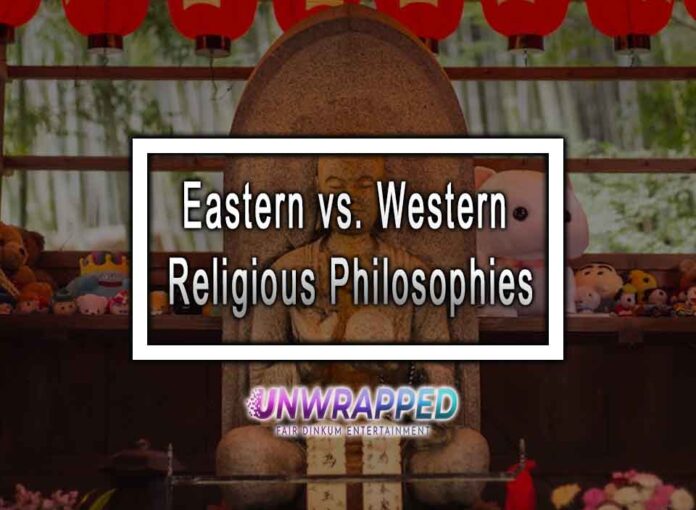Unveiling the Mysteries: Eastern vs. Western Religious Philosophies
When it comes to understanding the diverse tapestry of human spirituality, few things are as fascinating as exploring the distinctions between Eastern and Western religious philosophies. From profound differences in beliefs and practices to varying approaches to life’s fundamental questions, these two ancient traditions have shaped the way billions of people around the world perceive the universe and their place within it. Join us as we embark on a captivating journey to delve into the intriguing realm of Eastern and Western religious philosophies and discover the essence of their contrasting principles.
1. Concept of the Divine
Eastern Philosophy: The Oneness Within
In Eastern religious philosophies such as Hinduism, Buddhism, and Taoism, the concept of the divine revolves around the idea of interconnectedness. These traditions emphasize the belief in a universal energy or consciousness that permeates all living beings and the entire cosmos. Rather than viewing God as a separate entity, Eastern thought advocates for recognizing the divine within oneself and embracing the unity of all existence.
Western Philosophy: The Transcendent God
On the other hand, Western religious philosophies, including Christianity, Judaism, and Islam, typically emphasize the existence of a transcendent, personal God. This God is seen as distinct from the material world and serves as the ultimate creator and ruler of the universe. Devotees in Western traditions seek a personal relationship with the divine, often through prayer, worship, and adherence to sacred scriptures.
2. Approach to Spirituality
Eastern Philosophy: The Path of Inner Awakening
In Eastern philosophies, spiritual seekers often focus on inner exploration and self-realization. Practices like meditation, yoga, and mindfulness play a central role in their journey towards enlightenment. The emphasis is on achieving a state of higher consciousness and breaking free from the cycle of suffering and rebirth.
Western Philosophy: The Road to Salvation
Contrarily, Western religious traditions place significant importance on salvation and redemption. Adherents believe in the potential for eternal life after death and seek to align their actions with moral principles and divine laws. Rituals, sacraments, and religious ceremonies are essential components of their spiritual journey, guiding them toward spiritual growth and eternal salvation.
3. Perception of Time
Eastern Philosophy: The Eternal Now
Eastern religious philosophies often perceive time as cyclical, where events repeat in infinite cycles, such as the concept of reincarnation. This cyclical view leads to an emphasis on karma and the idea that actions in the present life will have consequences in future lifetimes.
Western Philosophy: Linear Time and Eschatology
Western religions, in contrast, embrace a linear view of time, where history unfolds in a linear progression. The idea of a definitive beginning and end of the world, often linked to a Day of Judgment or End Times, is a significant aspect of Western eschatology.
The Tapestry of Human Spirituality: Blending East and West
As our exploration of Eastern vs. Western religious philosophies draws to a close, it becomes evident that these ancient traditions offer unique and compelling perspectives on life, the universe, and our purpose within it. While Eastern philosophies encourage inner reflection and interconnectedness, Western traditions emphasize personal relationships with a transcendent deity and the pursuit of salvation.
Ultimately, the beauty of human spirituality lies in its diversity, as both Eastern and Western religious philosophies continue to shape the lives of countless individuals across the globe. By understanding and appreciating these differences, we can gain a deeper appreciation for the tapestry of beliefs that enrich our shared human experience. So, whether you find solace in meditation or seek guidance through prayer, may your spiritual journey be one of self-discovery and growth.
Read on: Unveiling Atheism and Secularism: 7 Fascinating Insights











